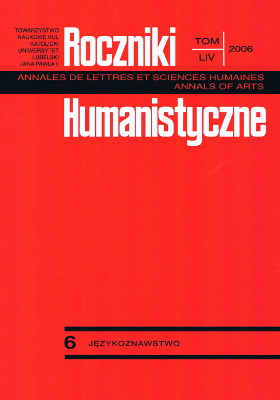“The blind man has his faults” – on the Didactism in Wacław Potocki’s The Garden, but Not Weeded
Abstract
We describe here the ways to express didactism in various genres from The Garden, but Not Weeded by W. Potocki, the poet of the 17th century. The author has manage to find out that the didactic function is played by the titles, the contents – being an example – with inherent maxims, counsels, warnings etc. Potocki very clearly formulated his moralising intentions and played the role of a mentor.
References
Lasocińska E: „Cnota sama z mądrością jest naszym żywotem”. Stoickie pojęcie cnoty w poezji polskiej XVII wieku, Warszawa 2003.
Michałowska T.: Staropolska teoria genologiczna, Wrocław 1974.
Pelc J.: Obraz – Słowo – Znak. Studium o emblematach w literaturze staropolskiej, Wrocław 1973.
Sarnowski M.: Deminutiwum jako znak ironii, w: Język a kultura, t. III, red. J. Puzynina, J. Anusiewicz, Wrocław 1991.
Skubalanka T: Wprowadzenie do gramatyki stylistycznej języka polskiego, Lublin 2000.
Słownik literatury staropolskiej, red. T. Michałowska i in., Wrocław 1998.
Copyright (c) 2006 Roczniki Humanistyczne

This work is licensed under a Creative Commons Attribution-NonCommercial-NoDerivatives 4.0 International License.





